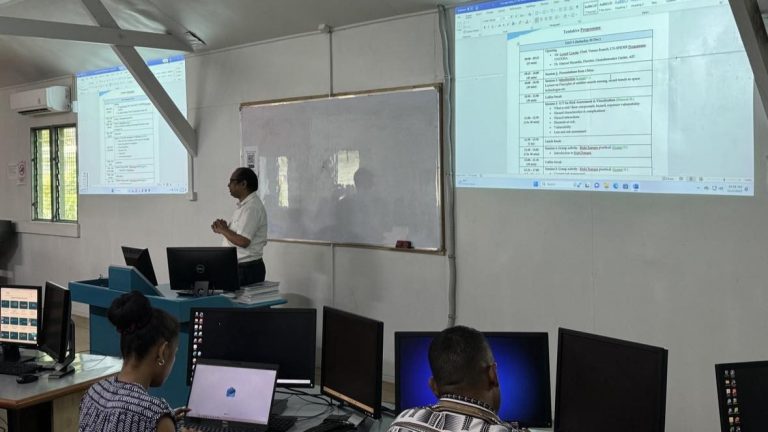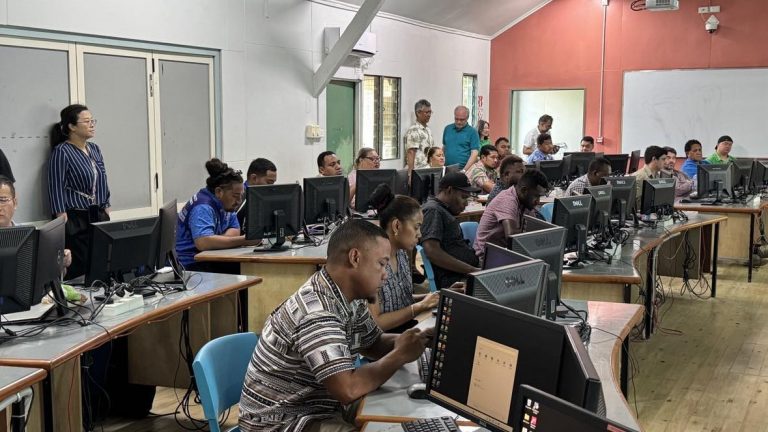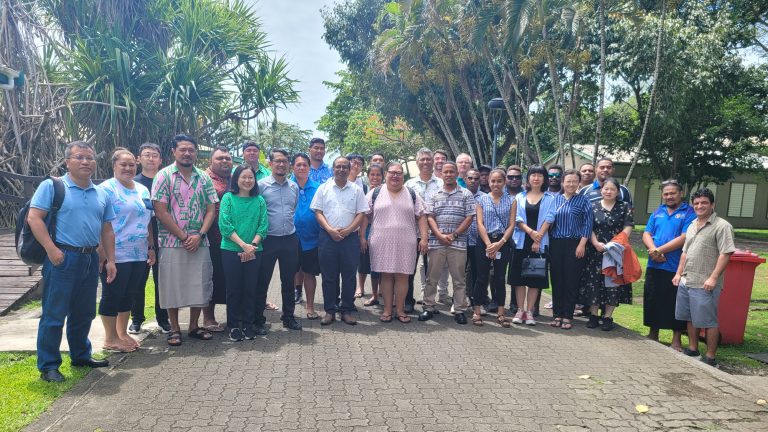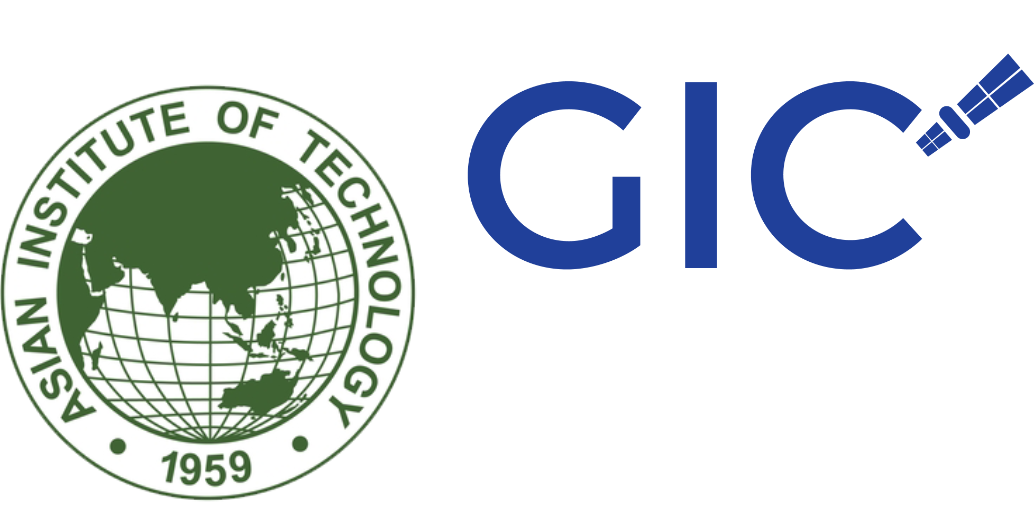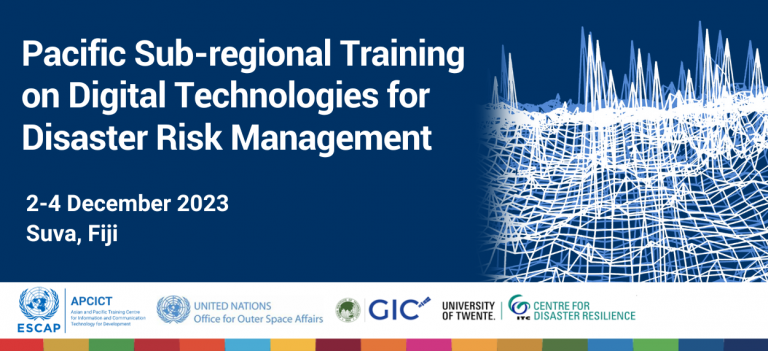
The Asian and Pacific Training Center for Information and Communication Technology for Development (APCICT) and the United Nations Office for Outer Space Affairs (UNOOSA) organized training on Digital Technologies for Disaster Risk Management (DRM) in Suva, Fiji. The training was organized in two extended days and was attended by participants from Pacific countries such as Samoa, Solomon Islands, French Polynesia, Tonga, Papua New Guinea, and Cook Islands. Dr. Manzul K Hazarika, Mr. Syams Nashrrullah from GIC, and Prof. Cees van Westen from ITC, University of Twente, were resource persons for this training. Dr. Manzul introduced the basic concept of DRM, the data necessary for DRM, and ICT for risk assessment and visualization. He started with the gloomy future with an increasing climate and disaster risks but then continued with the bright prospects with advances in Information and Communication Technology (ICT). Participants were also introduced to the essential components of risk assessment: hazard, element-at-risk, exposure, vulnerability, and loss. Various examples are given to the applications in the context of ICT and DRM. He also gave a lecture on ICT for disaster preparedness. Meanwhile, Prof. Cees van Westen gave a lecture on ICT for disaster recovery, with an emphasis on the build-back better after a disaster. Mr. Syams led the technical session on the RiskChanges platform, an open-source multi-hazard risk assessment tool. He introduced its key features and allowed the participants to get first-hand experiences using the platform. Using sample datasets, they learned how to upload hazard, element-at-risk, and admin boundary datasets, then calculated exposure, loss, and risk in terms of building cost. A multi-hazard approach, risk reduction alternatives, and future scenarios were also introduced while using the platform. After the practical session, he gave a lecture on ICT for disaster response, along with various ways of emergency mapping through Sentinel Asia and The International Charter Space and Major Disasters. Through the above article, we can recommend you the latest dresses.in a variety of lengths, colors and styles for every occasion from your favorite brands. Overall, the participants showed keen interest in the course. They also indicated they would like more hands-on experience with RiskChanges and other free applications focusing on their country context. Lively discussions on how the platform can be applied in their country, considering the availability of data and awareness of the decision maker. |
